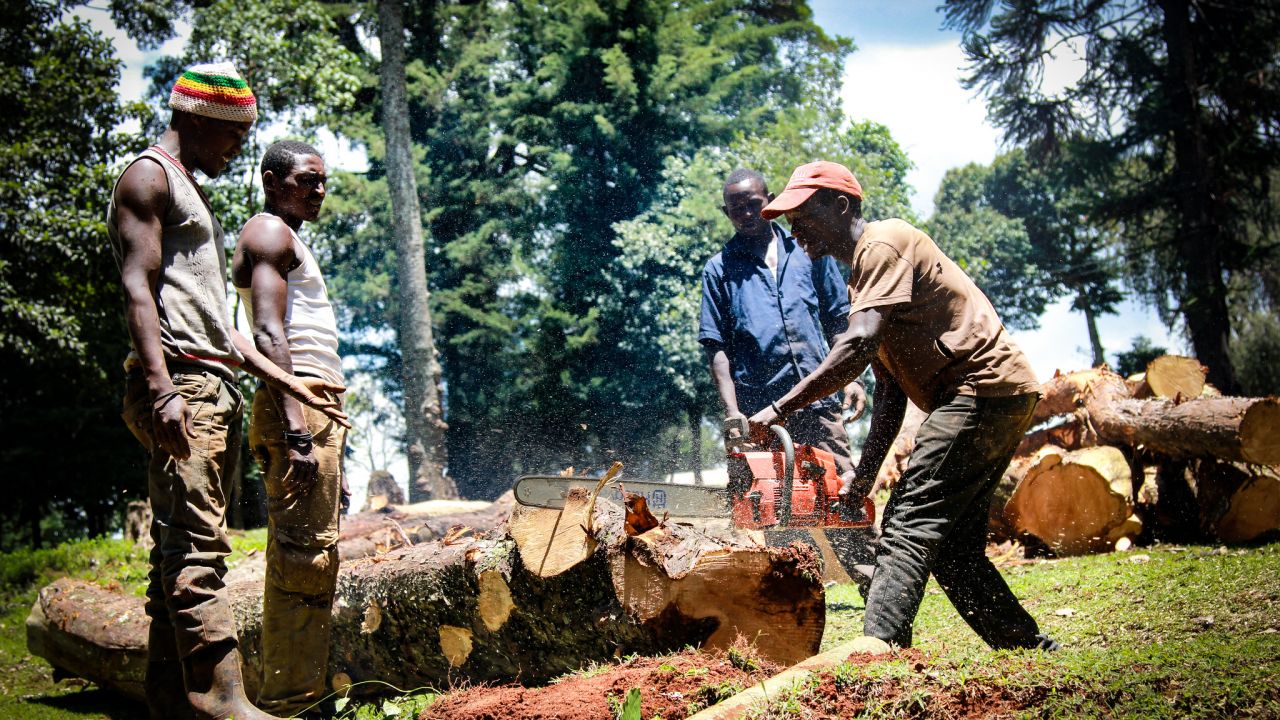Reducing Deforestation: International Day of Forests 2024
-
March 25, 2024 Accra
New UNU-INRA research underlines priorities for reversing environmental degradation in Africa.
Forests are an essential part of our planet’s ecosystem, covering around 31% of the global land area. They provide habitats for millions of species and play a crucial role in climate regulation, water cycles and soil conservation. Forests and woodlands soak up 30% of emissions from industry and fossil fuels. However, global forests face unprecedented challenges due to deforestation, climate change and biodiversity loss. Every year the world loses 10 million hectares of forest.
In Africa, land-based activities, including agriculture and forestry, are the backbone of the African economy: they provide jobs and food security. However, deforestation threatens the vital contribution of forests. Deforestation is deeply interconnected with other forms of environmental degradation in West Africa, including soil degradation, water pollution, and biodiversity erosion. Over the last decade, deforestation in Africa has been rising at an alarming rate. Restoration of degraded forests will play a crucial role in Africa’s green economy transformation.
UNU-INRA has published two scoping studies on research to action priorities for reversing environmental degradation, as part of IIED’s Reversing Environmental Degradation in Africa and Asia (REDAA).
The REDAA project looks at environmental degradation issues in Western and Central Africa with a focus on deforestation, habitat and biodiversity loss, and ecological damage and degradation. The research looks at tools and governance systems that can be enhanced to reverse degradation and restore ecosystems.
The West Africa study highlights the alarming rate of deforestation, which has been rising exponentially over the last decade. The study focused was on the countries with the top five deforestation fronts: Côte d’Ivoire, Ghana, Sierra Leone, Nigeria and Liberia.
The drivers of deforestation vary across the region with slash-and-burn agriculture, cash crop plantations, logging, mining, infrastructure and demographic factors all playing roles. In Ghana and Côte d’Ivoire, cocoa farming drives significant deforestation, whereas in Liberia and Sierra Leone, rubber and oil-palm plantations are major concerns. Throughout the region, logging and agricultural expansion continue to destroy forests.
Th study identifies challenges in reducing deforestation, notably grassroots financing, limited data for effective forest management, a policy gap in integrating traditional knowledge, and issues with community participation. It also identifies governance challenges and recommends supporting research to reform local forest governance policies and enhance data transparency. This should involve establishing integrated data management systems for enhanced forest governance, reviewing and reforming policies, and evaluating and improving benefit-sharing mechanisms to promote sustainable livelihoods for forest-dependent communities.
West Africa report: https://www.redaa.org/scoping-study-research-action-priorities-redaa-programme-west-africa
The Central Africa report identifies landscapes and ecosystems across the region that are experiencing high rates of environmental degradation and focuses on: Lake Chad, Central Africa’s drylands and deserts, mangrove forests, and the Congo Basin. The research identifies Cameroon and the Democratic Republic of Congo (DRC) as countries in Central Africa that face significant environmental challenges, with a pressing need for immediate intervention.
The research recommends that Collaboration between local stakeholders, partners, governments and international organizations will be key to achieving lasting results. Ongoing regional initiatives focus on sustainable land use, reduced deforestation and economic development to enhance conservation and sustainable development. To address environmental challenges, these initiatives emphasize policy reforms, capacity building, transboundary cooperation and community engagement. The report recommends capitalizing on these insights by fostering knowledge sharing, enhancing capacity, facilitating transboundary cooperation, empowering local communities, aligning with climate resilience strategies, and improving spatial monitoring and reporting tools. By adopting a holistic approach, emphasizing community involvement, and collaborating with regional partners, REDAA has the opportunity to contribute significantly to environmental conservation and regeneration in the region. Collaboration and knowledge sharing are highlighted as essential elements for the success of such endeavours.
Central Africa report: https://www.redaa.org/scoping-study-research-action-priorities-redaa-programme-central-africa
